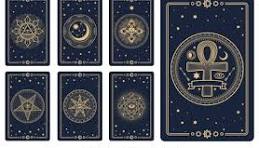In recent years, the world of personal finance has evolved dramatically. Traditional methods of budgeting, investing, and saving are now complemented by various unconventional approaches. Among these, tarot reading has emerged as a fascinating tool some individuals use to gain insights into their financial decisions. Exploring how tarot can influence personal finance decisions can provide a holistic as well as alternative perspective on wealth management and financial well-being.

The Basics of Tarot Reading
Tarot cards have a long history dating back several centuries, initially used for playing games before evolving into a tool for divination and self-discovery. A typical tarot deck consists of 78 cards, divided into the Major Arkana (22 cards representing significant life themes) and the Minor Arkana (56 cards focusing on day-to-day events and influences).
Each card carries its meanings, symbols, and interpretations, allowing readers to tap into their intuition and provide guidance. While tarot is often associated with love and relationships, its application in personal finance is becoming increasingly recognized. The evocative imagery and deep symbolism can unveil underlying emotions, beliefs, and subconscious patterns, offering rich insights into one’s financial situation.
The Intersection of Tarot and Personal Finance
Financial decision-making is inherently emotional. Factors such as fear of loss, desire to achieve wealth, or anxiety about future security can heavily influence how we handle our money. By integrating tarot into financial planning, individuals can reflect on their emotional responses to financial matters, identify roadblocks, and clarify their goals. This combination can lead to more conscious and informed choices.
Understanding Your Financial Mindset
Before diving into tarot readings tailored toward finance, it’s crucial to recognize your mindset around money. Reflect on questions such as:

- How do you view money? Is it a source of stress or empowerment?
- What are your beliefs around wealth? Do you consider money as something that comes easily or is always out of reach?
- How do past experiences shape your current financial behaviors?
Tarot readings can shed light on these questions by revealing patterns and insights about your relationship with money. By selecting specific cards that resonate with financial themes, you may uncover deep-seated beliefs that hold you back or empower you to reach your financial aspirations.
A Tarot Spread for Financial Insight
A popular tarot spread for addressing financial matters is the three-card spread, which can be configured to explore past, present, and future financial conditions. Here’s how to implement it:
- Shuffle and Draw Cards: Begin by focusing on your financial situation or a specific financial decision while shuffling the tarot deck. Once you feel ready, draw three cards.
- Interpret the Cards:
- Card 1: Past Financial Influences – This card represents the past events or beliefs affecting your current financial status. It can highlight previous successes or failures, shaping how you approach money today.
- Card 2: Present Financial State – The second card reveals your current financial condition, stresses, or advantageous positions. It can clarify where you stand and what actions you might need to consider.
- Card 3: Future Financial Potential – The final card projects potential outcomes based on your current trajectory. It serves as a guiding light, helping you visualize your future opportunities and challenges.
- Reflection and Decision-Making: Once you have interpreted your cards, take time to reflect on their meanings. Write down your thoughts, feelings, and insights. Use this information as a springboard for making informed financial decisions.
Exploring Specific Financial Questions with Tarot
In addition to the general three-card spread, tarot can address specific financial questions. Here are some possible inquiries that could benefit from a tarot reading:

- Should I invest in a particular opportunity?
- What are my strengths and weaknesses in financial management?
- How can I improve my savings habits?
- What blocks my financial growth?
- How can I create a more sustainable source of income?
With each question, you can design specific tarot spreads. For example, a five-card spread might tackle “investment decision making” and include cards for understanding risks, potential rewards, emotional responses, external influences, and advice on moving forward.
Common Tarot Cards and Their Financial Interpretations
Understanding the specific messages of key tarot cards can enhance your readings. Below are some cards commonly interpreted in the context of personal finance:
- The Fool: This card indicates new beginnings and opportunities. In financial terms, it might suggest taking risks or embracing new ventures.
- The Empress: Symbolizing abundance and fertility, this card often points towards enjoying financial comfort and the potential for growth.
- The Devil: This card can signify materialism, addiction, or unhealthy spending habits. It serves as a warning to assess your relationship with money.
- Ten of Pentacles: A symbol of legacy and financial stability, this card may indicate a prosperous future or successful investments.
- Five of Cups: Often signaling loss or disappointment, this card may suggest focusing on what remains rather than dwelling on financial setbacks.

Using Tarot alongside Traditional Financial Strategies
While tarot offers unique insights, it works best when combined with conventional financial strategies. Consider employing the following alongside your tarot readings:
- Budgeting: Create a comprehensive budget to track expenses, savings, and investments. While tarot can provide direction, a budget grounds your financial dealings in reality.
- Financial Education: Continuously read books, attend workshops, or seek guidance from financial advisors to understand investment principles, savings strategies, and economic trends.
- Goal Setting: Establish clear financial goals—be it for retirement, buying a home, or traveling. Use tarot to reflect on whether these goals align with your values and emotional state.
- Regular Assessments: Periodically review your financial position and adjust as necessary, using tarot readings to reflect on your emotional relationship to these changes.
- Visualization Techniques: Incorporate visualization exercises alongside tarot readings to reinforce your financial desires and manifest success.
Challenges and Limitations of Using Tarot in Finance
Despite its benefits, relying solely on tarot readings for financial decisions comes with caveats. Here are some challenges to consider:
- Subjectivity: Tarot interpretations depend on the reader’s knowledge and intuition; personal biases may cloud the reading.
- Uncertainty: Tarot does not guarantee specific outcomes. It provides guidance and reflection but may not deliver clear actionable advice.
- Misinterpretation Risks: Without proper understanding, tarot readings can lead to misinterpretation, resulting in misguided decisions.
- Balance: Avoid letting tarot dictate your financial choices. It should complement tangible strategies, not replace them.

Conclusion: A Holistic Approach to Financial Well-Being
Integrating tarot reading into personal finance decisions introduces an unconventional yet enriching dimension to financial wellness. By exploring one’s emotional relationship with money and addressing attitudes, fears, and aspirations, individuals can gain clarity that transcends numerical calculations. The combination of tangible financial strategies with intuitive insights can foster a holistic approach to financial health.
Whether you are hesitant about venturing into tarot reading or are already a practitioner, using this ancient tool as a reflective device can empower you to make confident financial decisions. As you step into the realms of wealth management with tarot in hand, you may uncover insights that resonate with your core beliefs and empower you toward a more prosperous future. Ultimately, the journey of financial growth is not just about accumulating wealth but also about understanding oneself and creating a legacy aligned with your values and desires.

